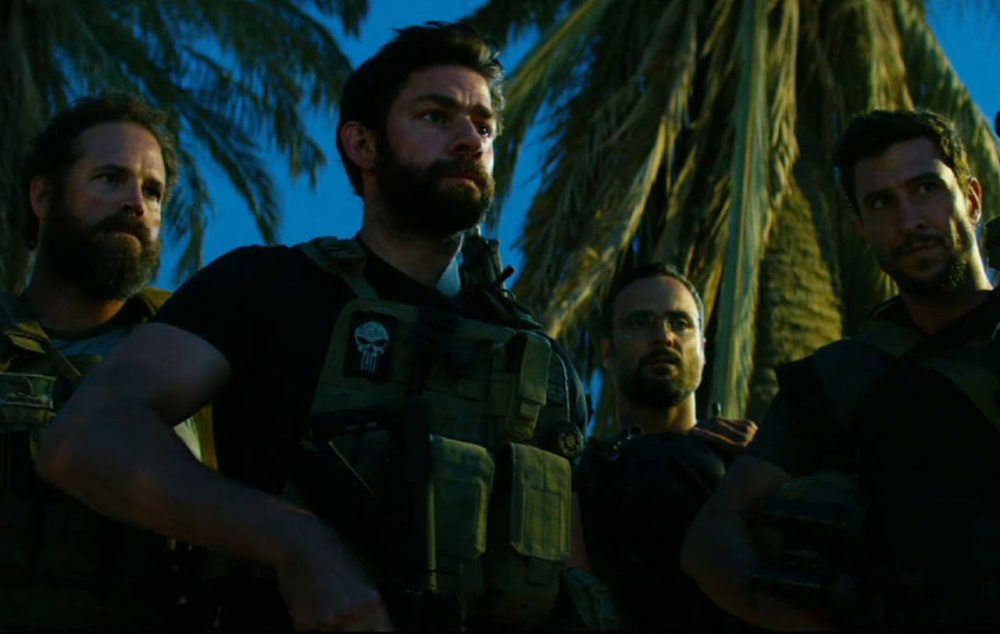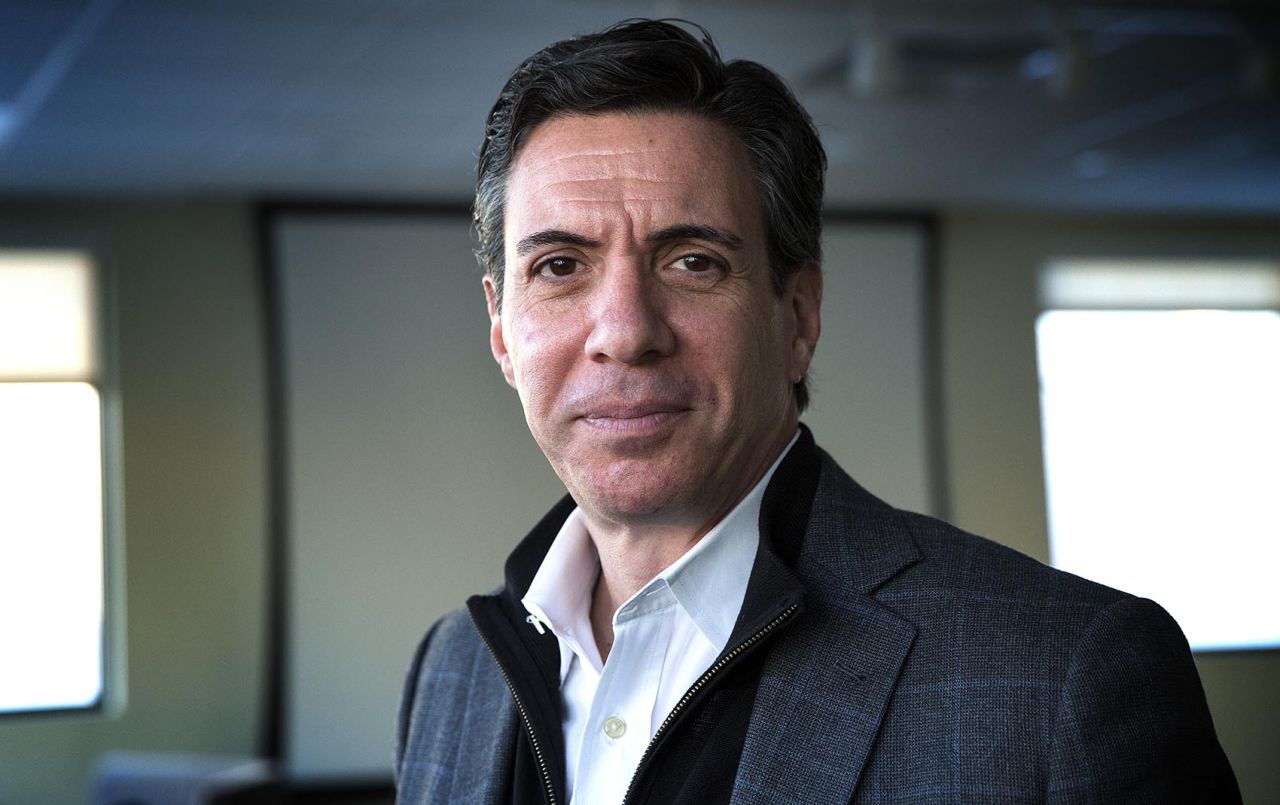Advertisement
'13 Hours' Seeks To Shed New Light On Benghazi Attacks


The new film "13 Hours: The Secret Soldiers of Benghazi" tells the story of the September 2012 attacks on a U.S. diplomatic mission and a C.I.A. station in Benghazhi, Libya, by Islamic terrorists.
Christopher Stevens, the U.S. ambassador to Libya, and three other Americans were killed. The attacks have become a political issue, in terms of how they reflect on the leadership of presidential candidate Hilary Clinton, who was Secretary of State at the time.
Journalist and Boston University professor Mitchell Zuckoff wrote the book on which the film is based. He tells Here & Now host Jeremy Hobson that though the events have become politicized, he wanted to focus on what actually happened on the ground that day in Benghazi.
Zuckoff's book, "13 Hours: The Inside Account of What Really Happened in Benghazi," looks at the attacks through the eyes of members of the security team at the C.I.A. compound. That team became the primary line of defense when the C.I.A. compound was attacked.
Interview Highlights: Mitchell Zuckoff
On what actually happened during the attack
"It’s important to start there. This is a story we want to focus on, what happened on the ground that day. So much has been focused on Washington and elsewhere. You have these two compounds separated by about a mile. The ambassador, the U.S. ambassador who is normally based in Tripoli, has just arrived. They are in Benghazi and he is based at this little diplomatic outpost, very lightly guarded. And at 9:42 that night suddenly Islamist radicals burst through the gates and they said ‘fire’ and immediately the compound is overrun."
On the absence of Hillary Clinton in the movie
“It is not a political movie. It is not about what happened in Washington that night. We know what is happening in the world right now, politically. But it’s not about her. Not that it has nothing to do with her. I understand the implications. She’s taken responsibility for the failure. And the clear failures of the State Department happened before this attack; this was so lightly guarded, this diplomatic compound. It didn’t satisfy the requirements of an embassy or a consulate because it was neither. And so when the accountability review board reviewed this, they said these were horrible failures by the State Department and so that does fall to Hillary Clinton as the head of the State Department at the time. She has both publicly and in her book taken responsibility for those failings.”
On the reasons why Benghazi became so politicized
“I use the cliché ‘a perfect storm.’ That’s really what it was. It was shortly before the 2012 election at a time when as we know America is already enormously polarized and politicized. And then there was of course the misunderstanding about what was the source of it. And it all fed into what turned out to be an enormously politicized moment in American history.”
On the precautions taken to ensure the film’s journalistic accuracy
“As a journalist, you’re always worried, ‘Did I get the full story?’ And you know I would like to hear more frankly from the people who were the attackers, who have not been overlooked but are obviously hard to get to. So we do have to be careful and I do understand that for a lot of people this will be history. But I will also say I believe that the essential truths of what happened that night in terms of the attack, in terms of the response, in terms of how it played out are captured in this movie.”
On drawing comparisons to 'Argo'
“There is an interesting parallel between the 'Argo' story and '13 Hours' in that around the world we have 285 or so diplomatic outposts, and the expectation that the local government will come to our aid if we ever come under attack on the sovereign property of the United States in an embassy."
"I think more and more in places like Benghazi, in places like Iran we have to be asking the question, can we trust the local government to protect our people?”
Did the State Department made any changes post-Benghazi?
“The State Department has promised they will never have another temporary mission facility like the one in Benghazi that is so lightly protected. But at the same time, history tends to repeat itself here and so it might not repeat itself in exactly the same way as Benghazi.
"Are there other threats we perhaps are not prepared for? I think maybe.”
On why he wrote the book
“These guys sought me out. They had stuck together after Benghazi. They had heard all the political implications, and they said, 'No one knows what really happened on the ground.' That’s been overlooked. When they reached out to me at first I hesitated. I said, ‘Do I really want to get into the Benghazi business?’ But you meet them, you talk to them and you realize: as a journalist I can’t not write this book.”
Guest
- Mitchell Zuckoff, author of "13 Hours" and a professor at Boston University. He tweets @mitchellzuckoff.
This segment aired on January 15, 2016.
